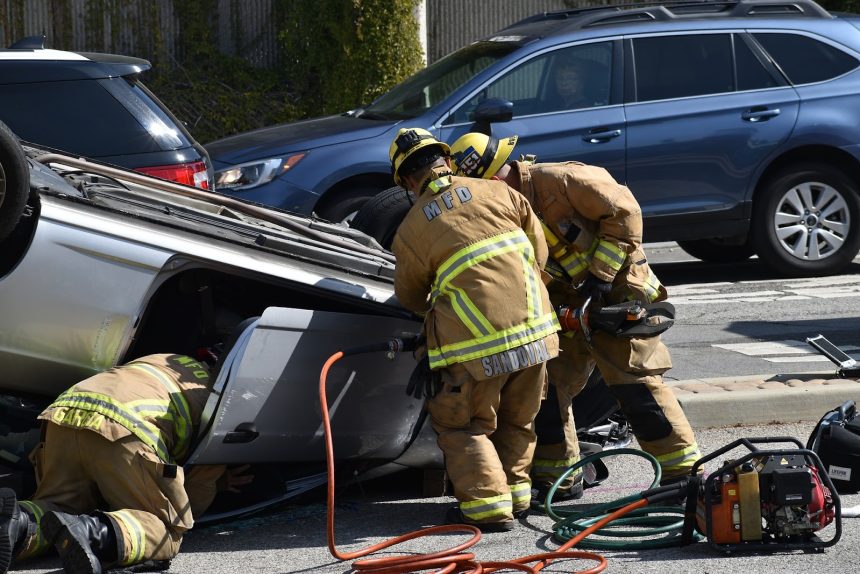Being involved in a car accident is stressful enough, but one of the biggest concerns afterwards is figuring out who’s at fault. Fault determines whose insurance pays for damages, and in some cases, it can lead to legal consequences. While some accidents have a clear culprit, others can be more complicated, leaving drivers wondering whether they’re to blame.
- Key Signs You May Be at Fault
- You Violated a Traffic Law
- You Rear-Ended Another Vehicle
- You Were Distracted While Driving
- You Admitted Fault at the Scene
- There’s Evidence Against You
- What to Do If You Might Be at Fault
- Will Being in a Crash Increase the Cost of My Car Insurance?
- Who Was at Fault
- The Damage Done
- The Claim
- Conclusion
Understanding how fault is determined can help you navigate the aftermath of an accident more confidently. Let’s go through the key signs that indicate you might be at fault and what you can do if you find yourself in this situation.
Key Signs You May Be at Fault
You Violated a Traffic Law
One of the clearest indicators of fault is breaking the rules of the road. If you ran a red light, ignored a stop sign, or were speeding, you’re more likely to be held responsible for the accident. Traffic laws exist to keep drivers safe, and violating them can put you in a tough spot when it comes to liability.
For example, if you were making an illegal turn and collided with another vehicle, it’s likely that you’ll be deemed at fault. The same applies to overtaking dangerously or failing to stop for pedestrians at crossings. See how your policy is affected and know what you’re facing in the future.
You Rear-Ended Another Vehicle
In most cases, the driver who hits another vehicle from behind is at fault. The general rule is that drivers should maintain a safe distance, allowing enough time to react if the car in front suddenly stops.
However, there are exceptions. If the driver ahead suddenly slammed on the brakes for no clear reason or their brake lights weren’t working, fault may be shared. Dash cam footage and witness statements can be useful in these situations.
You Were Distracted While Driving
Distractions are a leading cause of car accidents, and if you were texting, adjusting your satnav, or even eating when the accident occurred, you could be considered at fault. Even a momentary lapse in attention can lead to serious consequences.
If the police determine that you were distracted at the time of the crash, it will be hard to argue against your liability. Many modern vehicles store data on sudden braking and speed changes, and this information can be used to assess what happened before impact.
You Admitted Fault at the Scene
After an accident, it’s natural to want to apologise, but saying something as simple as “I’m sorry” can be used against you later. Even if you believe you were responsible, it’s best to stick to the facts and avoid making any statements that could be interpreted as an admission of guilt.
Instead, exchange details, take photos, and let the insurance companies and authorities determine fault based on the evidence. If you’re unsure, it’s always a good idea to speak to a solicitor before discussing liability.
There’s Evidence Against You
Sometimes, it’s not about what you remember but what the evidence shows. If a dash cam, CCTV footage, or witness testimony suggests you caused the accident, it will be difficult to dispute your responsibility.
Police reports also play a major role. If an officer issues you a citation at the scene, such as for reckless driving or failing to signal, that can be strong evidence of fault.
What to Do If You Might Be at Fault
If you suspect you may be responsible for the accident, it’s important to handle the situation carefully. Here’s what you should do:
- Stay calm and don’t admit fault. Let the evidence determine what happened.
- Gather information. Take photos of the scene, get witness details, and make notes about what occurred.
- Report the accident to your insurer. Even if the other driver says they won’t claim, it’s best to inform your insurance company.
- Consult a solicitor if necessary. If the accident involves significant damage or injuries, legal advice can help you understand your options.
Will Being in a Crash Increase the Cost of My Car Insurance?
Car insurance can be expensive, and you might be worried that being in an accident will make the price skyrocket. First, know that there are various facts a car insurance company takes into account when preparing your premium. For example, your age and driving record play a part in the price. Indeed, if you have been in an accident recently, this can have an impact on how much you pay. But, companies will look into this incident in more detail to determine what your policy will be. Let’s take a look at what they need to know.
Who Was at Fault
One of the most important elements a car insurance company needs to know is who caused the accident. If it was the other driver’s fault, this might mean that your premium doesn’t increase. However, if your actions led to the crash, this is going to increase how much you’re paying. You’re deemed as being a high-risk driver, and the company will see you as more likely to make a claim in the future.
The Damage Done
The details of the accident matter. For example, if you hit someone’s bumper and only caused minor damage, this might see only a small increase in your premiums. After all, it was a minor incident. However, if you write off your vehicle or cause significant damage to the other driver’s car, this could increase premiums by up to 50 per cent.
The Claim
The claim itself can have an impact on your premiums. For instance, if it was a non-fault accident and you claimed through the other’s insurance, this might not impact your policy. However, if you’ve claimed through your own policy, this is likely going to mean you’re paying more.
Conclusion
Figuring out whether you’re at fault in a car accident isn’t always straightforward, but recognising the key signs can help you prepare for what comes next. From traffic violations to distracted driving, various factors can indicate liability.
If you’re ever involved in a crash, staying calm, gathering evidence, and understanding your rights can make all the difference. The best way to avoid being at fault? Stay alert, follow traffic laws, and drive responsibly.















